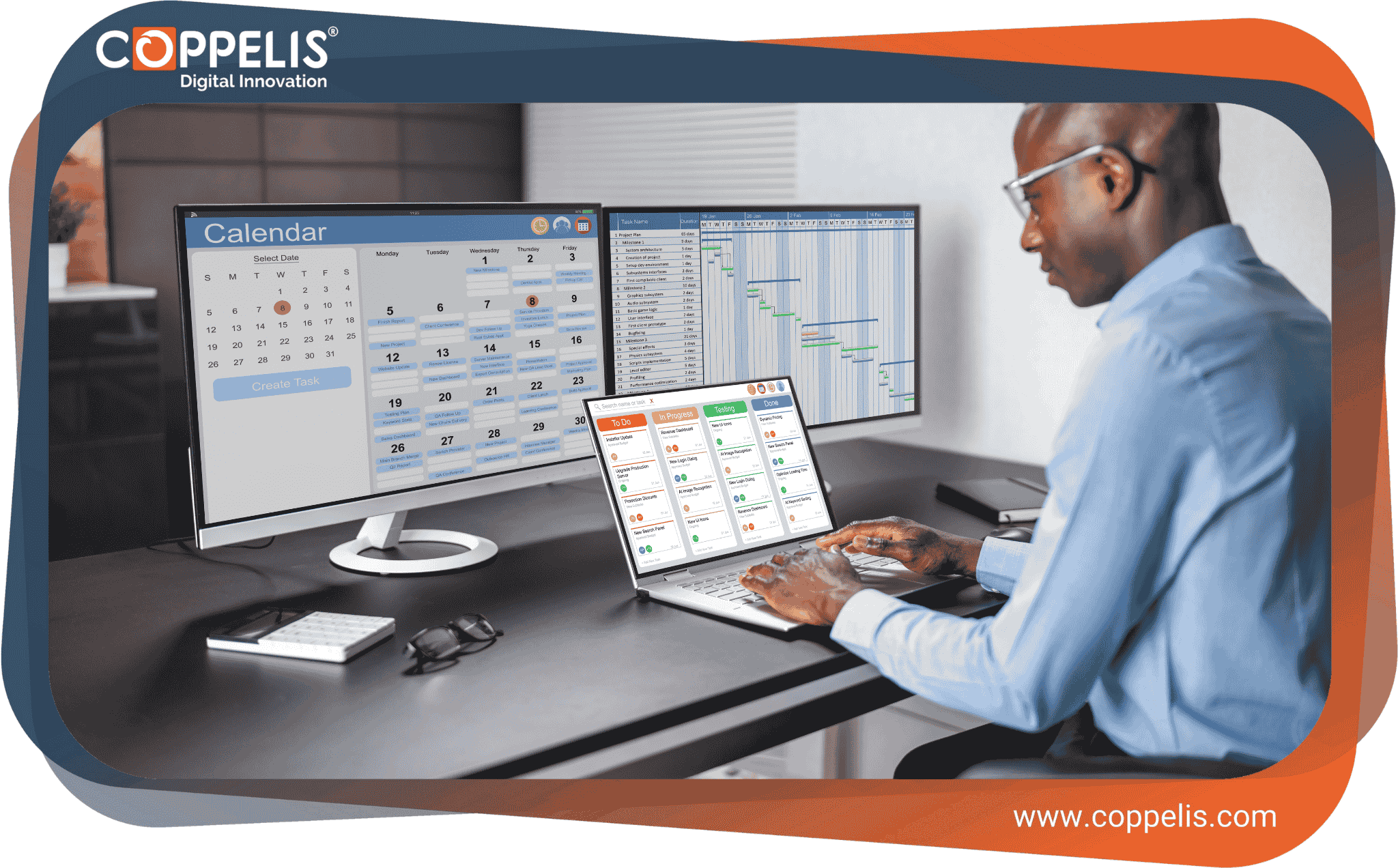In today’s fast-paced business environment, companies are increasingly relying on real-time project management platforms to streamline operations, improve collaboration, and enhance productivity.
When it comes to quality control, these platforms offer a significant advantage, enabling businesses to monitor and manage projects in real-time, ensuring that quality standards are met consistently throughout the project lifecycle.
This article explores the key features and benefits of real-time project management platforms for quality control, their impact on different industries, and how they contribute to improving overall project outcomes.
The Evolution of Project Management in the Digital Age
Project management has evolved significantly over the past few decades.
With the rise of digital tools and technologies, businesses can now manage projects more efficiently, keeping track of tasks, deadlines, budgets, and resources in ways that were not possible with traditional methods.
Real-time project management platforms are at the forefront of this evolution, providing project managers with the tools needed to manage and oversee complex projects from start to finish.
In the past, quality control was often a reactive process. Project managers would review completed tasks or milestones, check for quality issues, and make adjustments as necessary.
However, with the advent of real-time platforms, project managers can now monitor progress as it happens, ensuring that quality issues are identified and addressed immediately, rather than after the fact.
Key Features of Real-Time Project Management Platforms
- Real-Time Data Monitoring and Reporting
One of the standout features of real-time project management platforms is their ability to provide up-to-date data on the progress of a project.
Whether it’s tracking the status of tasks, the completion of milestones, or the allocation of resources, project managers can access real-time information that allows them to make informed decisions.
For quality control, this is especially valuable because it ensures that any issues affecting product or service quality are identified early on, allowing teams to take corrective action before problems escalate.
- Collaboration and Communication Tools
Effective communication is essential for quality control in any project. Real-time project management platforms offer a variety of collaboration tools that facilitate communication among team members, stakeholders, and clients.
Features such as chat, video conferencing, and file sharing make it easy for everyone involved to stay on the same page, reducing the risk of misunderstandings or missed information that could impact the quality of the project.
By providing a centralized space for communication, these platforms ensure that feedback is immediate, and quality standards can be quickly reviewed and addressed.
When issues arise, teams can respond in real-time, preventing delays and ensuring that quality is maintained throughout the project lifecycle.
- Task and Workflow Automation
Another key feature of real-time project management platforms is task and workflow automation.
With built-in tools for scheduling, task assignment, and progress tracking, these platforms allow project managers to automate routine processes.
This automation frees up time for project managers to focus on higher-level tasks, such as quality control, and ensures that nothing falls through the cracks.
For quality control, automation is particularly useful in ensuring that critical quality checks are carried out at the right time.
By setting up automated workflows for inspections, tests, or approvals, businesses can reduce the likelihood of human error and ensure that quality standards are consistently met throughout the project.
- Integration with Other Tools and Systems
Real-time project management platforms often integrate with other software tools and systems, allowing businesses to centralize their project management efforts.
This integration can include connections to accounting software, resource management tools, and customer relationship management (CRM) systems, among others.
For quality control, integration with existing systems allows project managers to access all relevant information in one place.
This could include performance data, compliance metrics, or supplier information, all of which are essential for ensuring that quality standards are met.
Having access to all this information in real time means that project managers can act quickly when issues arise, avoiding potential disruptions and ensuring the highest quality output.
Benefits of Real-Time Project Management Platforms for Quality Control
- Improved Efficiency
By providing project managers with up-to-the-minute data on all aspects of a project, real-time platforms make it easier to track progress and identify any issues that could affect quality.
This leads to faster decision-making, as project managers don’t have to wait for reports or updates from team members. Instead, they can view live data and take immediate action to address any concerns.
Real-time updates also reduce the need for frequent meetings and status reports, allowing teams to focus on their work rather than spending time on administrative tasks.
This increased efficiency benefits both the quality of the project and the bottom line, as resources are used more effectively, and delays are minimized.
- Better Risk Management
Managing risk is a critical component of quality control. Real-time project management platforms help project managers identify potential risks and issues before they become major problems.
With continuous monitoring and tracking, managers can anticipate challenges and address them in real time, rather than reacting after a problem has already occurred.
For instance, if a supplier is late delivering materials or if a team member falls behind schedule, project managers can take immediate corrective actions.
By staying ahead of potential risks, businesses can maintain quality standards and avoid costly delays.
- Greater Accountability
Real-time project management platforms promote accountability by tracking progress in real-time and assigning tasks to specific team members.
This ensures that everyone involved in the project is aware of their responsibilities and can be held accountable for meeting quality standards.
By having a transparent view of task assignments and deadlines, project managers can quickly identify any delays or issues that could impact quality.
This makes it easier to address performance gaps and ensures that team members remain focused on delivering quality results.
- Enhanced Decision-Making
Quality control requires accurate and timely information to make informed decisions.
Real-time project management platforms provide project managers with the data they need to make quick decisions that support the overall quality of the project.
For example, if a quality issue is detected during the project’s execution, project managers can use real-time data to determine the root cause and decide on corrective actions.
This minimizes the impact of quality problems and ensures that the project continues to meet the required standards.
Real-Time Project Management in Various Industries
Real-time project management platforms are used across a wide range of industries, each with its own unique quality control requirements. Here are a few examples:
Construction:
In construction projects, real-time platforms are used to track the progress of building activities, manage inspections, and ensure compliance with safety and quality standards.
These platforms can provide project managers with up-to-the-minute reports on material quality, inspections, and vendor performance, ensuring that the project is completed to specification.
Manufacturing:
In the manufacturing industry, real-time platforms help manage production lines, monitor quality control checks, and track inventory.
These platforms can detect issues such as equipment malfunctions or material defects, allowing businesses to take immediate action and maintain product quality.
IT and Software Development:
In software development projects, real-time platforms are used to track bug reports, version control, and code quality.
By providing a centralized space for collaboration and quality checks, these platforms help ensure that the final product meets all technical specifications and user requirements.
Healthcare:
In healthcare projects, real-time management platforms help ensure that quality control standards are adhered to in medical research, patient care, and pharmaceutical production.
Real-time tracking of compliance and regulatory requirements helps avoid costly mistakes and ensures high-quality outcomes.
Conclusion
Real-time project management platforms have revolutionized the way businesses approach quality control.
By providing project managers with the tools to monitor progress, communicate effectively, and automate workflows, these platforms enable more efficient and accurate quality control.
As industries continue to embrace digital transformation, real-time project management platforms will play a pivotal role in enhancing the quality and success of projects, ensuring that businesses can deliver superior products and services to their customers.


